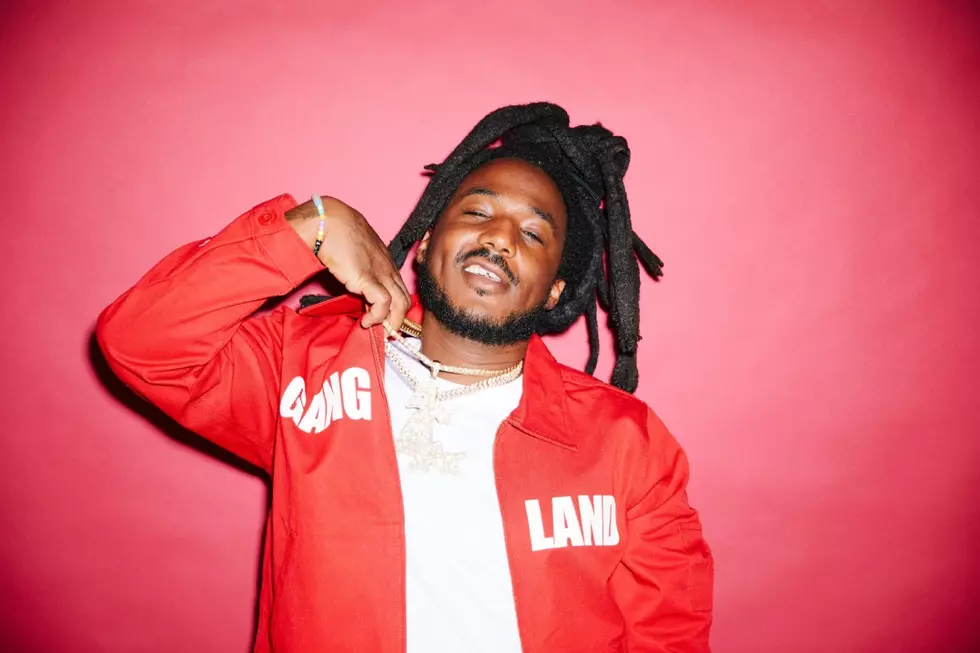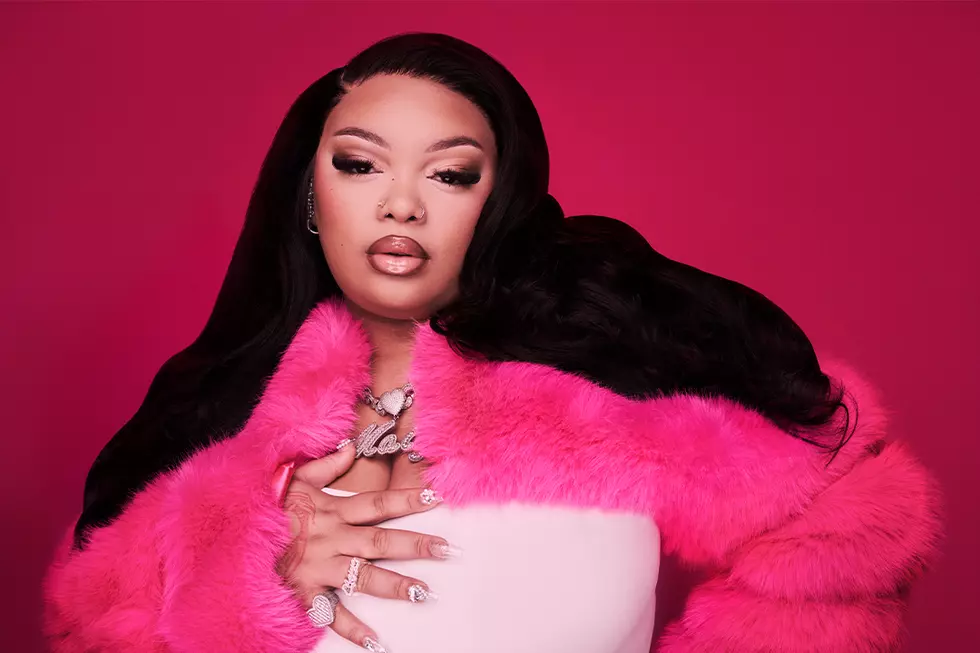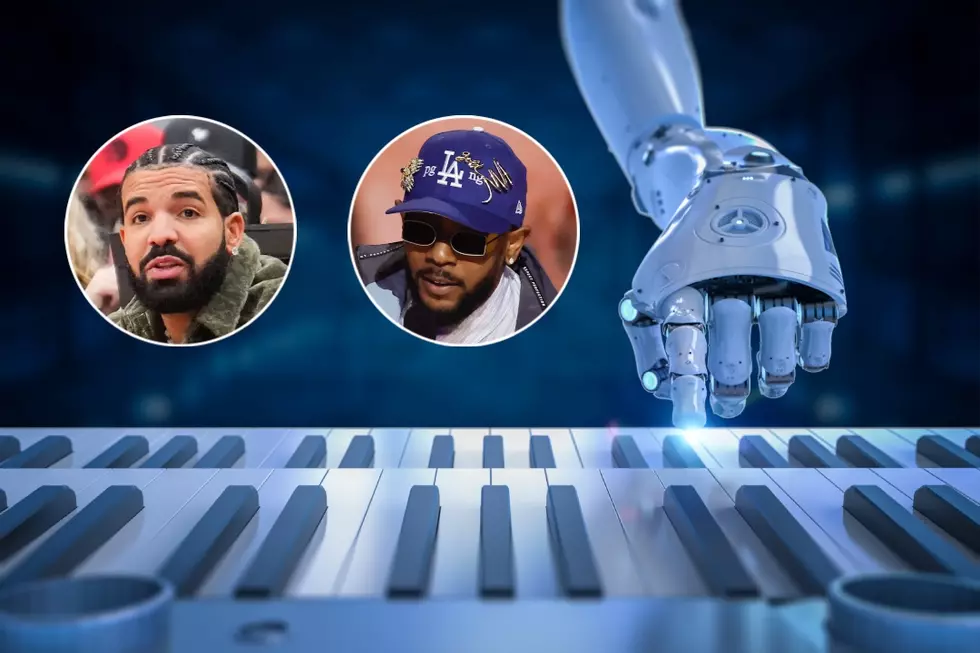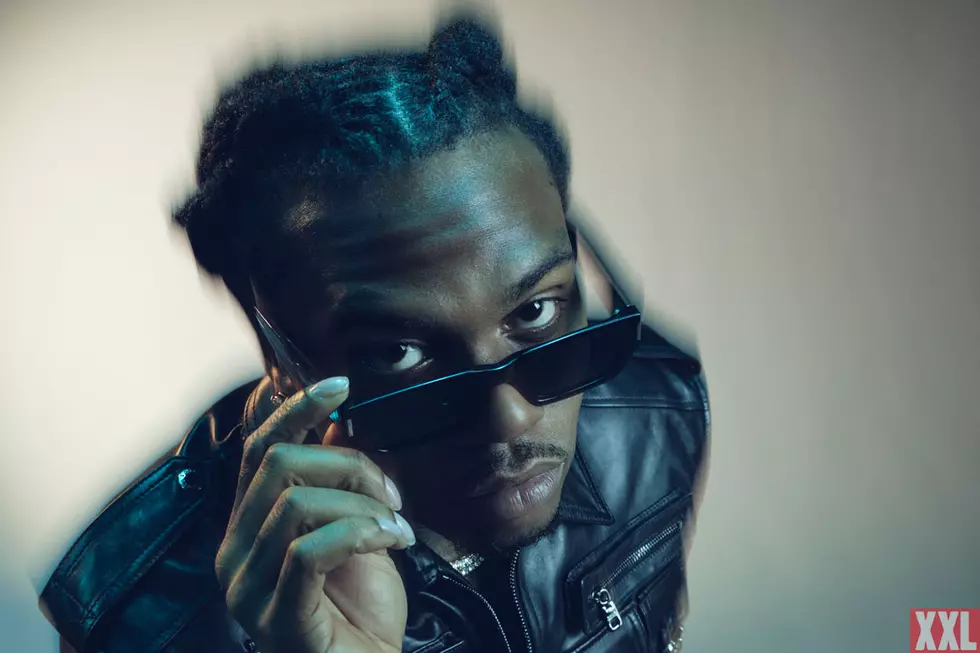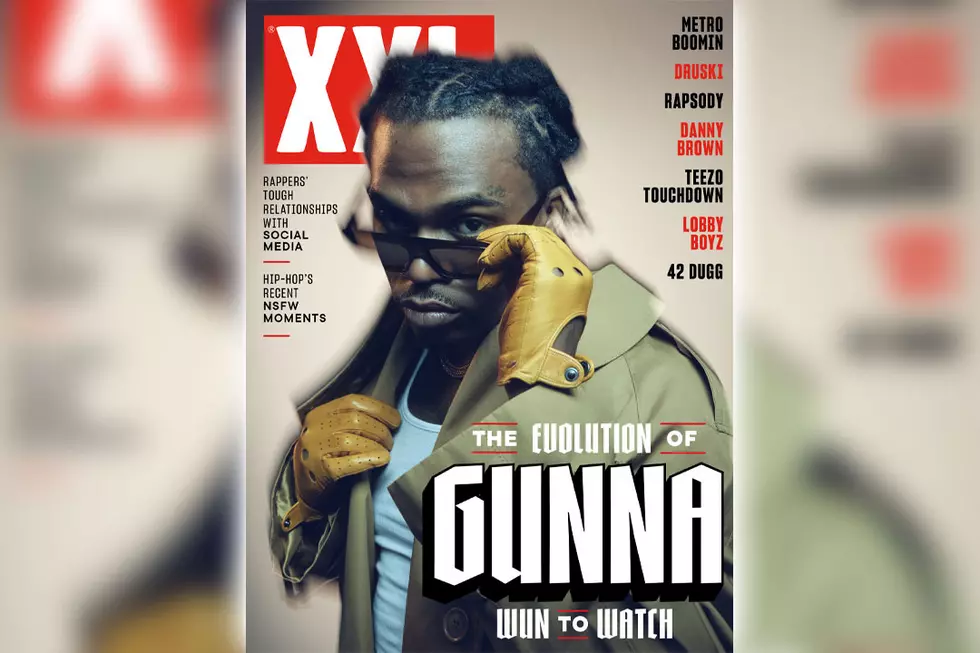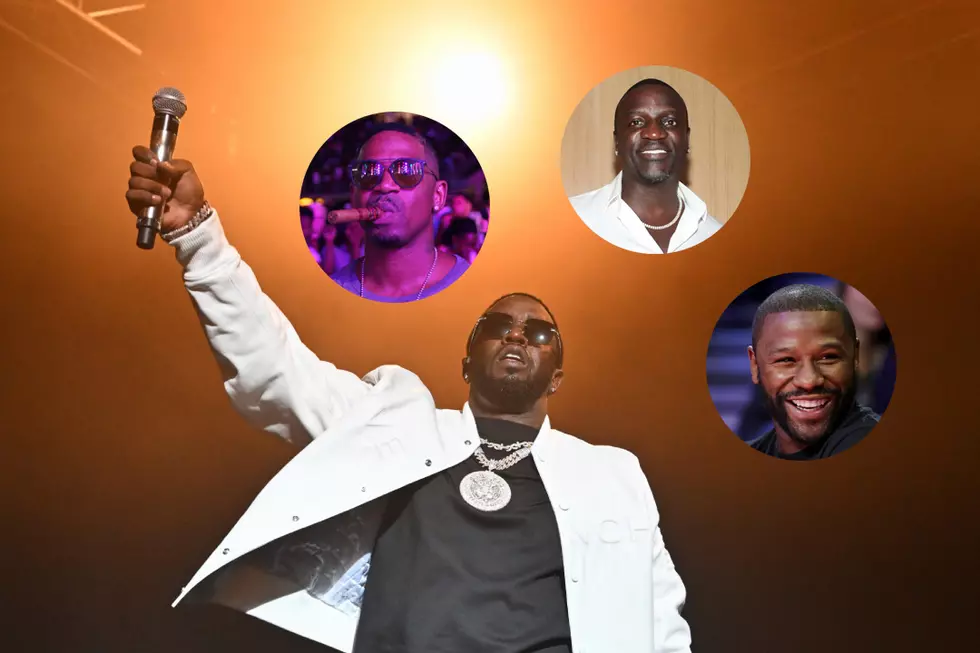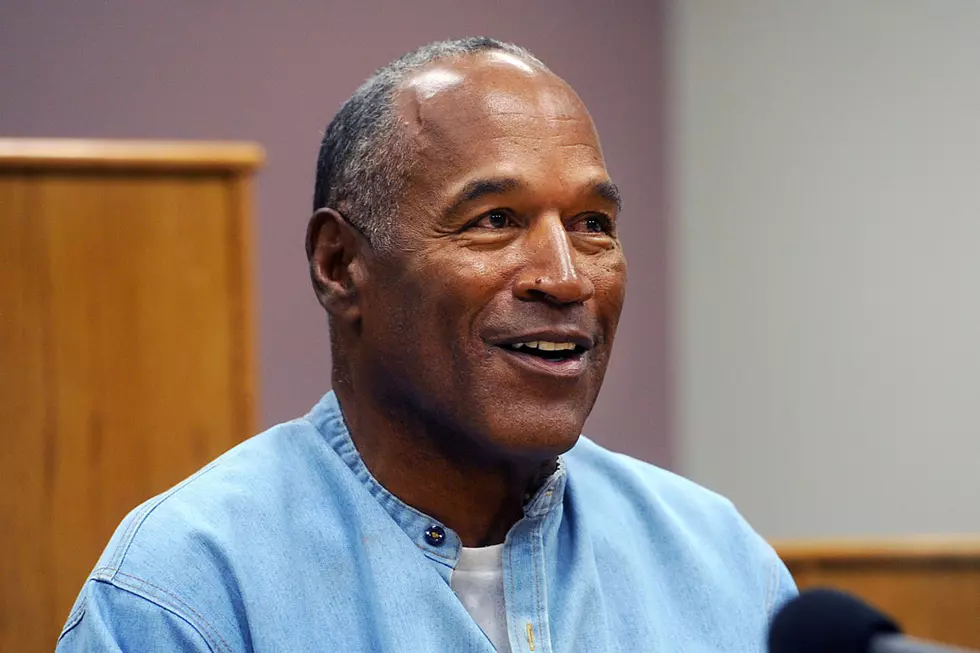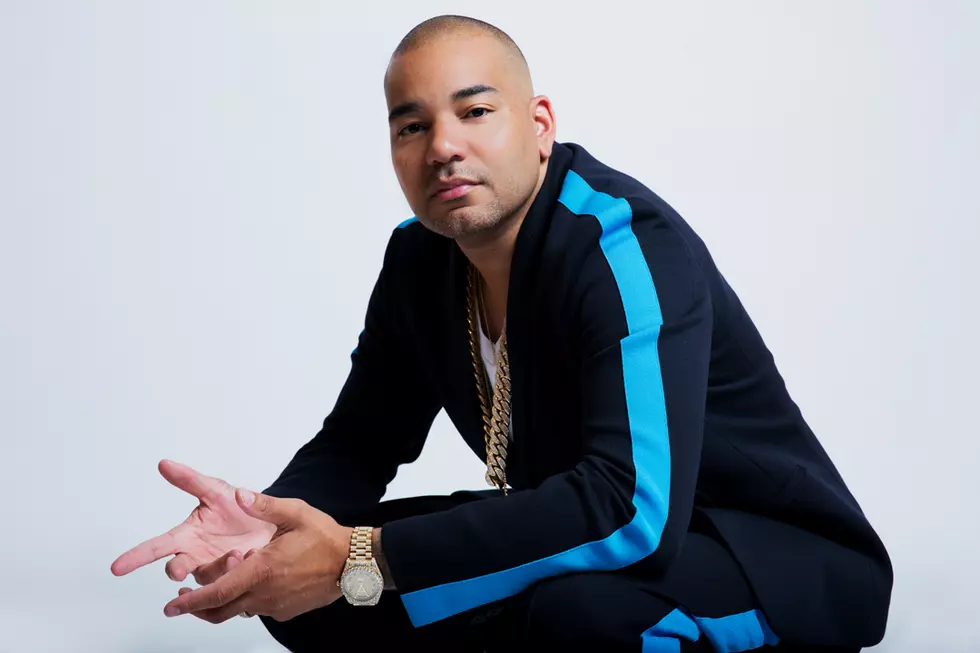
DJ Envy Plans to Satisfy Every Mood With Upcoming Album ‘Just a Kid From Queens’
DJ Envy has made a career out of reinventing himself. With nearly 20 years in hip-hop, the New York native has gone from pushing mixtapes to DJing gigs around the globe and hosting one of the hottest radio shows in the country. The 40-year-old has been waking up New Yorkers for six years now on Power 105.1's The Breakfast Club with co-hosts Angela Yee and Charlamagne Tha God. Along with Yee, Envy has even opened up a juice bar in Brooklyn. With so much on his plate, the DJ hasn't returned to creating original music of his own since 2014's Full Breach. Vol. 5 album, but that's about to change.
Envy, newly signed to Commission Music, is slated to drop his new album, Just a Kid From Queens, early next year. Fans got a preview of the new project last month when Envy dropped the first single "Text Ur Number" featuring Fetty Wap and DJ Sliink. Produced by Esentrik and Envy, the banger draws inspiration from Jersey club music and in his opinion, shows his diversity more than any other project of his to date.
"When I first set out to do this, I was like, ‘Fuck that. I’m going to take it back to streets. It’s going to be all hardcore shit,’" Envy tells XXL while at the New York office. "But then I realized I have different feelings for different moments. Yeah, sometimes I want to hear a grimy, gritty song. But then other times I want to have my shirt off and show my beach body and do some Jersey fist-pumping. But then sometimes, I want to chill with my wife and ride down the street and be sexy and then sometimes, I want to bounce around and act a fool in the club. I wanted to have all those elements on my album. I knew I wanted to have all the moods. It goes everywhere."
Envy's Just a Kid From Queens is set to drop in 2018, with features from the likes of A Boogie Wit Da Hoodie—who Envy calls New York's "next star"—Fabolous and more. Before the album drops, Envy caught up with XXL to talk about his evolution, trusting his own kids to pick his singles and how the role of a DJ has changed during hip-hop's streaming boom.
XXL: You've got a new album coming out. Just a Kid From Queens. Congratulations. Tell us about it.
DJ Envy: Thank you. The name of the album is Just a Kid From Queens. I came up with that title because when I grew up in Queens, I never expected any of this. I majored in marketing and business management and I always thought I’d graduate school, get myself a Wall Street job, something like that. And I told myself I’d give myself a year to do music and then everything just took off so, it’s just like, damn, I’m just a kid from queens who actually made it. So I just want people to know it doesn’t matter where you’re from. You could be from Baltimore, Delaware, Brooklyn, Chicago, St. Louis, hard work and persistence will get you there so that’s why I named it Just a Kid From Queens.
It’s dope because it’s given me new life when it comes to making albums. I get bored real quickly. That’s why I do so much because if I always think if I’m doing nothing I feel useless, so I always need to move. So when Commission came and approached me about doing an album, a bunch of labels came up to me who wanted to do a partnership. They said, "You can do whatever you want. We’re not rushing you, we don’t care if it takes you 10 years to make an album. Just do it how you want to do it." And so I said, "Alright, bet."
We did the deal about nine months ago, and then they hit me like, "We haven’t heard from you." And I was like, "You said I could do it the way I want." And that’s when we came with this Fetty Wap record. They were surprised like, "This is not the type of record we were expecting" and I said, "I didn’t want to do the type of record you were expecting."
Yeah, “Text Ur Number.” It has a Jersey club vibe. Why did you want to go that direction with the first single?
You know, I’ve done records with Fabolous, Jadakiss and JAY-Z and all that. I wanted to come with something left. And I came up with the concept because I DJ everywhere. I DJ in Miami, in Ibiza, in Dubai but then I also DJ in the grimy strip clubs in New Jersey and the holes-in-the-wall clubs in New York and I really wanted a record that could transcend over all those platforms. If I’m in Vegas I could play it. If I’m in Jersey I could play it. And Fetty Wap was the perfect artist to do this because back when he did “Trap Queen,” that was a hood song but it had huge commercial success.
I’ve been living in Jersey for about 15 years now. Jersey music is big, Baltimore music is big and it’s the kids, they’re the ones on Spotify and Apple and Tidal. They don’t buy music anymore, they stream. So I had about four or five records done. I played them all for my daughter, she’s 15, and right away she was like, "Dad, that’s the record. I can dance with my White friends to this and I can dance with my Black friends to this."
One-woman focus group right there.
Yup, right there and she was right. So I was like, "Let’s go." At first I had a lot of tough feedback from people. Like, "Oh it’s not urban. It’s not hardcore enough." And my response to them was like, "You can’t tell me what’s urban. I’m the dude that’s in the club five nights a week in the hole-in-the-wall club that somebody just got shot and I’m walking over them to get home. I’m that guy. I’m the guy doing all the shows in Alabama and Memphis, so you can’t tell me what’s urban ’cause I’m the one that’s playing it."
So I’ve been telling people, "Don’t tell me. Give it a chance." So since then, the success and the feedback has been great. Like, look [at] even the success of Childish Gambino. “Redbone” is not an urban record, it’s an outside of the box record but it worked because it’s a great record. I didn’t want to do the same record that everyone has out right now. So it’s been great so far. Millions of streams, kids are doing dances and stuff so It’s great, I’m excited. It’s a different audience and I’m having fun with it.
So who are some other big features you have coming on the album and how did you play matchmaker to get the collabs to happen?
Well, I’m not going to tell you who is on the album because we don’t have clearances as of yet for everybody, but it’s just a feeling. You ever hear a beat, a record and you know exactly what artist would sound dope on the record? That’s how I do it. And some of these records are ideas I’ve had in my head for seven years. I’ll tell you about the Fab [Fabolous] record.
The Fab record was something that I heard seven years ago and I got the idea in the my head and it never left so when it came time to put together the album, I called Fab. And Fab was like, "I don’t know." But I sent it to him and he killed it. This was around Christmas and I sent it to him and he just did it. And then I was thinking of who else I could put to the record with him and I heard his collab when he did “Wild Thots” with A Boogie [Wit Da Hoodie]. I was like, Ok, A Boogie would be crazy on this. So I called A Boogie he was with it.
It was a crazy situation. I was in bed with my wife and I was getting it in and the phone rang. And if you know when you got a boyfriend, girlfriend, whatever, if the phone rings at three in the morning you gotta answer. So I answered and it was A Boogie. He told me to come to the stu at three in the morning. He did the record right then and there and then I went back to the studio with Fab and Fab redid his vocals to make it dope. That’s probably going to be the second or third record. But that’s how most of the records are coming together on this album. I’m hearing stuff, I call somebody, they tell me how they feel and it’s just all coming together.
It’s the synergy.
Who are some other DJs or producers you’re working with for the album?
DJ Sliink, who’s on “Text Ur Number.” He actually helped me create the record. He’s an amazing DJ, he’s known very well in EDM. He’s from Newark, N.J. It's so weird, he’s from the middle of the hood but he does EDM. So it’s dope. My whole thing is I support my DJs. I always try to give my DJs as many outlets as possible. I didn’t have many outlets. Nobody helped pull me up when it came to it besides Clue so I’m really into putting them into my shows, my album, the videos all that.
So that’s DJ Mono, DJ Hollywood, DJ Lil Man—he’s actually one that did the Jersey Club remix that all the little kids are dancing to. As far as the producers, most of the producers are still early names. I haven’t really reached out to the major ones yet. Like I tell everybody, I want to get the people that are harder to get before I get my friends. I could always be like, "Yo, Swizz I need your help," ’cause that’s my guy.
Yeah, a good card to have in your back pocket.
Exactly. So, I’m trying to get the other ones first.
Who are some young producers you think are really doing well right now?
I love London [on Da Track]. I love Metro [Boomin]. I love Mike WiLL Made-It. I love the guys that can create different sounds and make a wave for people to follow.
Let’s go back through your history. You started off in the mixtape game and built your way up from there. How have you seen the mixtape game change? Like you said, a song’s success is based off streams and viral ability these days. What do you think is the value of the mixtape game now?
Not as much as it was before. For one, when mixtapes started it was all about blending and mixing. People got a cappellas from different artists and blended them with beats and it was dope. Then DJ Clue came out and started doing exclusives and everybody wanted to hear the new stuff first and then DJs were fighting for who had the song first.
And then, secondly, I think with the internet, artists started thinking, Maybe we don’t need the DJs. Maybe we don’t need to put out music through this person, we came just put it out ourselves. So the DJs and the mixtapes kind of fell off as far as DJs doing mixtapes. Now, artists are doing mixtapes and they don’t necessarily need the DJs. Now people are calling things projects instead of mixtapes. So mixtapes, they ain’t what it used to be.
How do you feel about that?
It’s just like adapting to the times. I can’t be one of those guys yelling, "Back in my day…" It is what it is. People don’t spin records at clubs anymore but I’m happy. I don’t have to carry 15 crates to the clubs no more. I got a laptop and I’m good so it’s just about adapting.
And you spoke about artists cutting DJs out of the release process. What do you think is the role of the DJ in hip-hop right now?
I think the DJ has always been the one to break the record. An artist can try to stay away from the DJs as much as possible, but you need the DJ to break that record if not on radio, then in the club. It has to be one of those things… I think the DJ is respected but I think any DJ has to make himself as big as they possibly can so they’re always respected.
That’s why I always try to have my foot in every door that I pretty much can. Whether it’s the podcast world or it’s the on-air world or the mixshow world or it’s the club world or making albums world. You really want to make it so that an artist needs you and not needs them.
We’re in a time when someone can put a playlist together and bring their laptop to the club and call themselves a DJ. What do you think about actors or even Instagram models claiming they’re DJs?
I mean, that’s all cool but at the end of the day, a lot of them suck. You can pay an IG model to DJ or a celebrity to DJ but it doesn’t really matter because if they suck, they suck. It might work for a couple of times, but people will start to catch on that they suck no matter who they are. The role of a DJ is in my opinion, especially when it comes to a club, is to make somebody feel good.
You just got into an argument with your man. Your man just cheated on you and you out with your girls, you want to not think about that. You just want to have a good time that night. Or you’re a dude and you had a tough day at work, you had an argument with your girl or you had an argument with your boss, you just want to get away from that. That’s my job. When you’re in that club for four hours, you’re not thinking about anything, any stress. You’re just having a good time and if you didn’t leave the club feeling that way, then I didn’t do my job.
When you’re playing for different age groups, there’s a sense of ageism. It’s all throughout hip-hop but how do you think ageism plays into the DJ role? And do you think there’s a cut-off age to being a hip-hop DJ?
I definitely don’t think there’s a cut-off age. I just think you have to do your homework and be in the know. I just did a teen party at a teen club that ended at 11 [p.m.]. And two hours later, stuff I played at the teen club, two hours later is not the stuff I play at the strip club. I’ve played at the Kentucky Derby and stuff I played there is nowhere near what I play at the strip club.
It’s just different feelings and knowing your audience. I go to Vegas and I play certain songs and they’re not the same set list I’m going to play in New York. It’s just a matter of doing your homework and really understanding the crowd. That's what I do.
See New Music Releases for September 2017
More From XXL

